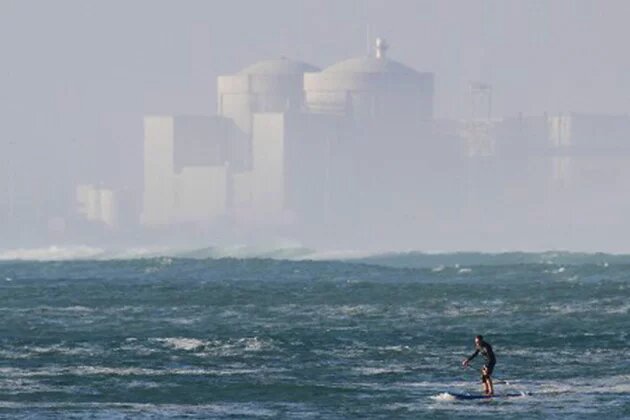
South Africa has the only nuclear power station on the continent. Now, the second biggest economy in Africa, and the most carbon polluting, plans to add another six or eight to the fold. But the cost could run into the trillions – larger, even, than the annual national budget, explains SA-based science writer Leonie Joubert.
The nuclear power industry is notoriously clandestine. But in a democracy, transparency is a bedrock principle, particularly when costly infrastructure projects mean massive amounts of money are involved. Without transparency, the risk of corruption is just too great, civil society activists argue.
This is why industry observers are nervous about the recent behind-closed-doors discussions between South African (SA) president Jacob Zuma and Russian president Vladimir Putin on the possibility of the Russians building a new fleet of six or eight new nuclear power stations in South Africa. It would be the biggest infrastructure project in the country’s history.
The SA government says it needs to boost its ageing coal-based grid by adding new generation capacity, some of which will be nuclear (it’s mostly coal-based at present, and coal will continue to dominate). Russia’s state energy company Rosatom wants the job, and the Putin administration might even be willing to put up the money for building the entire fleet. Their low-interest loan will only likely need to be serviced once the stations are up, running, and earning money.
But the figures are staggering: estimates suggest that this fleet of reactors would cost between USD 24 billion and USD 112 billion. Comparisons are already being made between the notorious SA ‘arms deal’ and this impending infrastructure project. The 1999 Strategic Defence Package agreement committed the government of the day to spend around USD 2.5 billion on military hardware, a deal that was later exposed to be riddled with unprecedented amounts of bribery and corruption.
The SA government has been courting ‘vendor’ countries (those with nuclear power building capability) since Jacob Zuma became president in 2009, signing cooperation agreements with China, France, the United States, South Korea and now Russia. Russia seems to be leading the pack in terms of being the most likely country to get the gig.
Formal bidding starts soon, with a decision expected within the next six months. According to local newspaper, the Mail & Guardian, the first reactors should be connected to the grid by 2023, with the whole fleet running by 2029.
Civil society organizations have long been worried about the lack of transparency, where officials are using the industry’s historic secretiveness, and hiding behind government-to-government bargaining processes, to bypass transparency measures that would come with having the process scrutinized by structures such as the Cabinet and Parliament.
New nuclear is already more expensive than renewable capacity today (read more here).
But besides concerns about the massive costs and the potential for corruption, there is another question: does South Africa need this risky and expensive technology when the world is moving away from nuclear, and utility-scale renewable energy is becoming increasingly affordable, quick to build and capable of meeting base-load demands?
According to the Department of Energy’s blueprint for energy provision in the country – the 2010 Integrated Resource Plan (IRP) – the initial calculations estimated that the country needed to increase its nuclear capacity from the current 5 percent (provided by the continent’s single nuclear power plant, Koeberg, just outside Cape Town) to 20 percent. This means adding 9600 MW of nuclear generation to the grid. But since then, the IRP has been tweaked, saying that if costs of nuclear remained high, the plan should be scrapped. However, officials are largely ignoring this recommendation.
It seems that politicians want these nuclear power stations. Most technicians and energy analysts think they may not be necessary. Civil society definitely doesn’t think they are necessary. The country will know in six months what the future of this important energy path will look like, and what burden of debt the country’s children will be inheriting.
Leonie Joubert is a science writer and journalist, and currently works as a fellow with the University of Cape Town’s Environmental Humanities of the South, where she is looking at the political economy of the food system in her country.
This article was first published here:
http://energytransition.de/2015/07/south-african-view-on-nuclear/